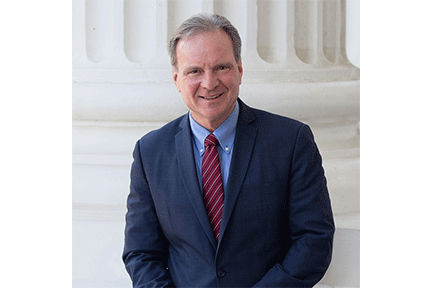Senator Dave Cortese (D-San Jose), Chair of the California Senate Labor, Public Employment and Retirement Committee, made the following statement about California Governor Gavin Newsom’s 2021-22 Revised State Budget proposal that was introduced in Sacramento.
Workforce Development
The $100 billion economic recovery package, the largest in the state’s history, is bolstered by the state’s significant $75.7 billion budget surplus as well as $27 billion in federal relief that was approved earlier this year.
“An essential component of reviving our economy is to ensure that both our private and public sector operations can find the qualified workers they need,” says Senator Cortese, an author of SB 33, Inclusive Apprenticeship Opportunities, a bill that will ensure disparities are addressed so that apprenticeship opportunities in the building and construction trades sector can be more inclusive of women, underrepresented, and disadvantaged populations in California.
This revised budget, or “May Revise” as it’s also called, contains $1.03 billion in workforce development investments, including $20 million in one-time General Fund dollars for Housing Construction Apprenticeship opportunities, $750 in one-time American Rescue Plan Act funds to go toward just economic transition strategies and implementation, particularly in the high road industries through clean energy jobs, $50 million in one-time General Fund dollars for the Employment Training Panel to provide training resources in economically disadvantaged communities, and an additional $90 million for the California Workforce Development Board’s High Road Training Partnerships initiative. The budget also includes $157 in one-time General Fund dollars to create new workforce partnerships with California’s Community Colleges.
“In an economic climate that has been severely impacted by the pandemic, these significant workforce development investments, totaling over $1 billion in training, apprenticeship opportunities and innovative workforce partnerships, are needed for a just economic recovery that prioritizes job quality and enables fairness and equity in our job market.”
“Increasing opportunities available to prepare workers for high-quality and skilled careers will not only advance gender and racial equity, it will improve economic security for all communities.”
Universal Basic Income
Senator Cortese, author of SB 739, The Universal Basic Income for Transition Age Foster Youth Act, also applauded the Governor’s commitment to universal basic income (UBI) programs and what would be an historic statewide investment towards UBI. The revised budget includes $35 million from the State’s General Fund over five years to go to toward UBI pilot programs administered by cities and counties targeted to low-income individuals and requiring a local match.
Cortese’s SB 739, which has passed through the Senate Human Services Committee and will now be heard in the Senate Appropriations Committee, would provide unconditional and direct cash assistance of $1,000 a month to approximately 2,500 youth aging out of the Extended Foster Care Program in California. The pilot program, based on the successful, first-of-its kind model championed by Cortese in Santa Clara County, would be administered by the Department of Social Services over the course of three years.
“This year’s budget values the role that direct cash assistance can play in lessening hardships and uplifting our youth so that they can reach their full potential,” said Senator Cortese. “I am pleased to see the concept of unconditional cash transfers grow and take on new forms and I hope this will plant the seed for more programs centered around these principles.”
The revised budget also includes a proposal to provide low-income students minimum base deposits for their college savings. Under this plan, public school first-graders that qualify for federally subsidized school meals would receive $500 to create a college savings account that would grow over time. Foster youth as well as unhoused youth would receive a $1000 payment to create this account.
“I applaud Governor Newsom for his leadership and for acknowledging the disproportionate barriers to attaining higher education that our unhoused as well as foster youth face.”
Senator Cortese recently joined Mayor Michael Tubbs, the founder of Mayors for a Guaranteed Income and Special Adviser for Economic Mobility and Opportunity for Governor Newsom for a round table discussion on universal basic income efforts across California and our country. Watch a recording of this event at this link.
“We can live in a society where everyone has a floor, which doesn’t mean that everyone has luxury, but it does mean no one should live in scarcity, no one should live in poverty,” said Mayor Michael Tubbs about the concept of a guaranteed basic income. “That’s not an idealistic argument. That’s an argument based on the reality of the resources and the wealth that we have as a society, but also an understanding of what it takes to be human,” he added. Mayor Tubbs recently called for and led the implementation of a basic income pilot in the City of Stockton called the Stockton Economic Empowerment Demonstration (SEED). Results from the SEED program displayed that participants used their cash assistance payments to pay for basic needs such as housing and food and that they were more than twice as likely to be fully employed compared to their peers who did not participate in the program.[1]
Senator Dave Cortese represents State Senate District 15 which encompasses most of Santa Clara County, including the cities of Campbell, Los Gatos, Cupertino, Saratoga, Monte Sereno, and much of San Jose, stretching from the Santa Cruz Mountains to the west and Mountain Hamilton Range to the east.

